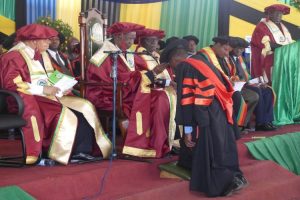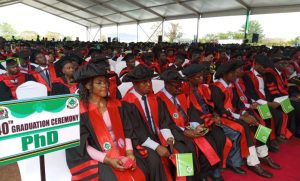The Department of Animal, Aquaculture, and Range Sciences offers postgraduate programs that typically provide students with an opportunity to conduct in-depth research in their chosen field of study. Postgraduate programs provide students with advanced knowledge and skills, as well as practical research experience, which helps to prepare them for careers in academia, research, industry, or government agencies.
Postgraduate programs in this department may focus on a variety of topics, including animal nutrition, productivity, genetics, reproduction, behavior, welfare, aquaculture production systems, fish nutrition, and health, aquatic ecology, range ecology, pasture, forage management, and non-conventional animals.
In a Master’s program, students typically take advanced coursework in animal science, aquaculture, or range management, and conduct a research project under the supervision of faculty advisors. The research project may involve laboratory work, fieldwork, or data analysis, depending on the student’s area of interest or specialization. A PhD program, on the other hand, requires more extensive research and typically takes longer to complete. PhD students conduct original research in their chosen field and produce a dissertation that makes a significant contribution to the field. They may also take advanced coursework and may have the opportunity to teach undergraduate courses.
The Department of Animal, Aquaculture and Range Sciences has been offering MSc. training in Tropical Animal Production since 1990, and MSc in Aquaculture. Plans are underway to establish MSc. in Range Management.

The Doctor of Philosophy (PhD) program at the Department of Animal Science, Aquaculture and Range Sciences produces experts with advanced knowledge in the area of Animal Science, Aquaculture and Range Management. The program allows students to discover, develop, and distribute scientific knowledge to specialized areas emanating from the highest standards of supervision and teaching excellence from our faculty members.
Graduates are expected to contribute novel insights through original research, publications, and conference presentations. They should demonstrate proficiency in critical thinking, experimental design, and data analysis. The program prepares individuals for leadership roles in academia, research institutions, industry, and government agencies, fostering innovation and advancements in the specialized field

The Department of Animal, Aquaculture, and Range Sciences
The College of Agriculture, Sokoine University of Agriculture
Share this page
